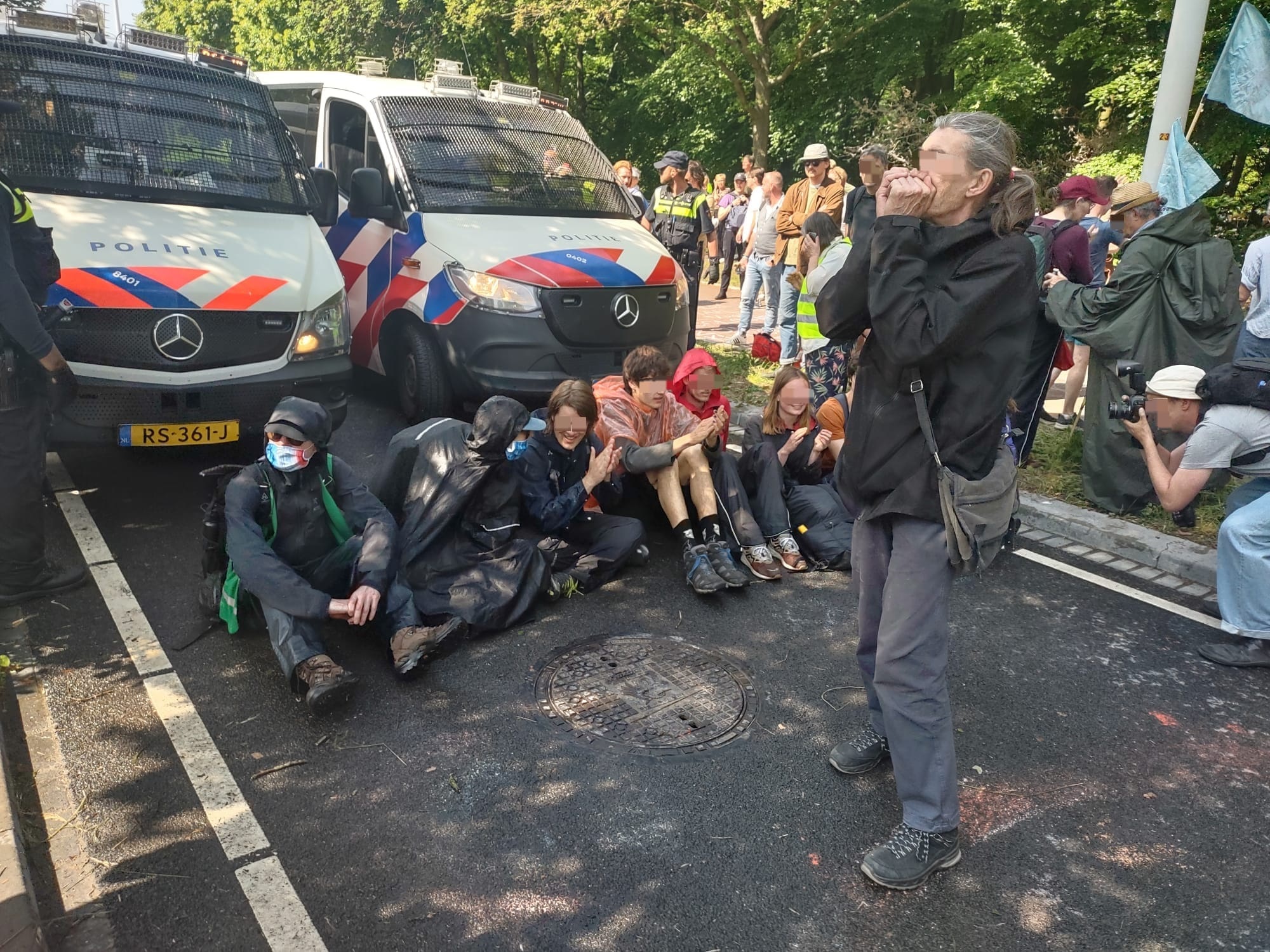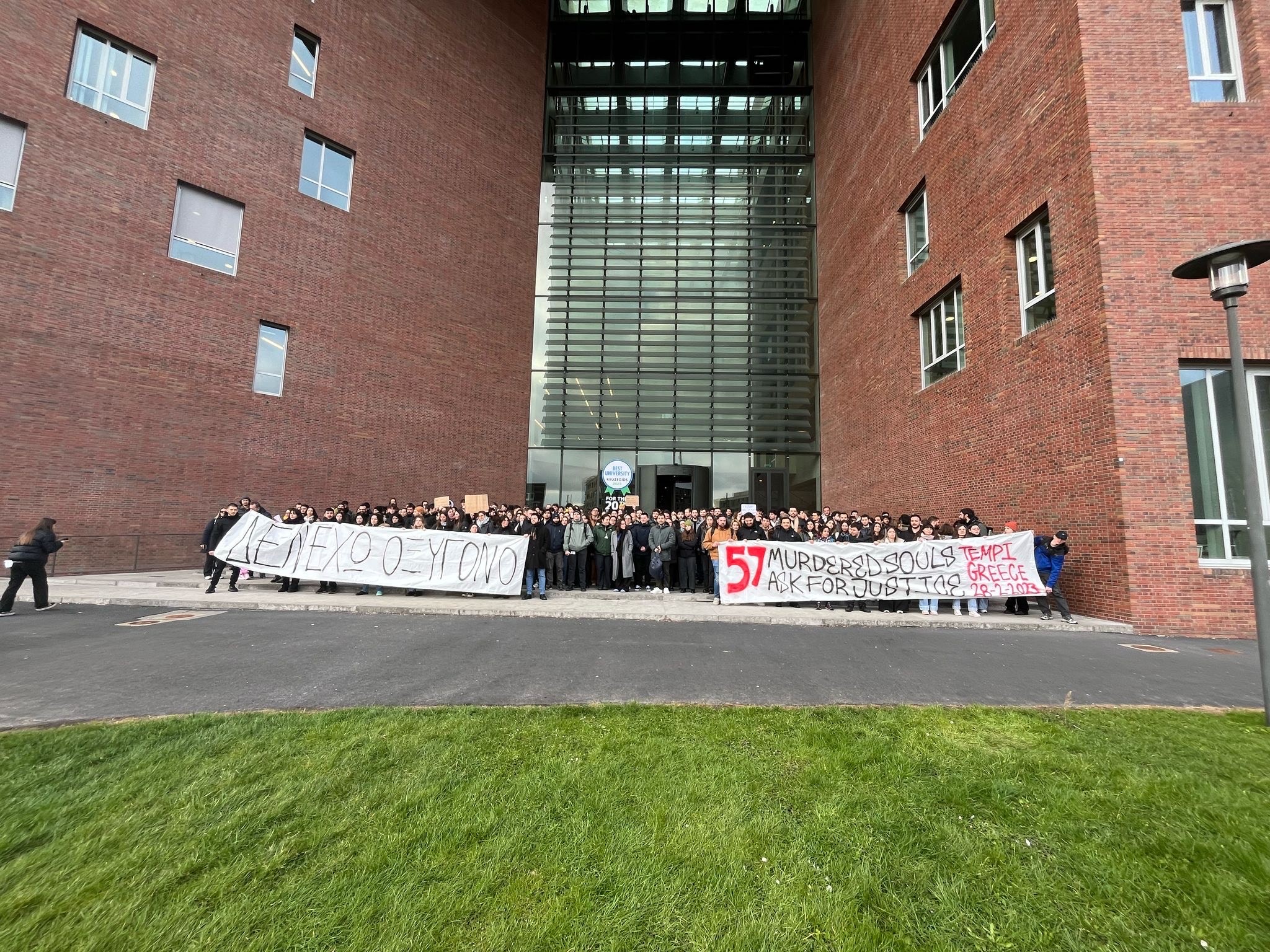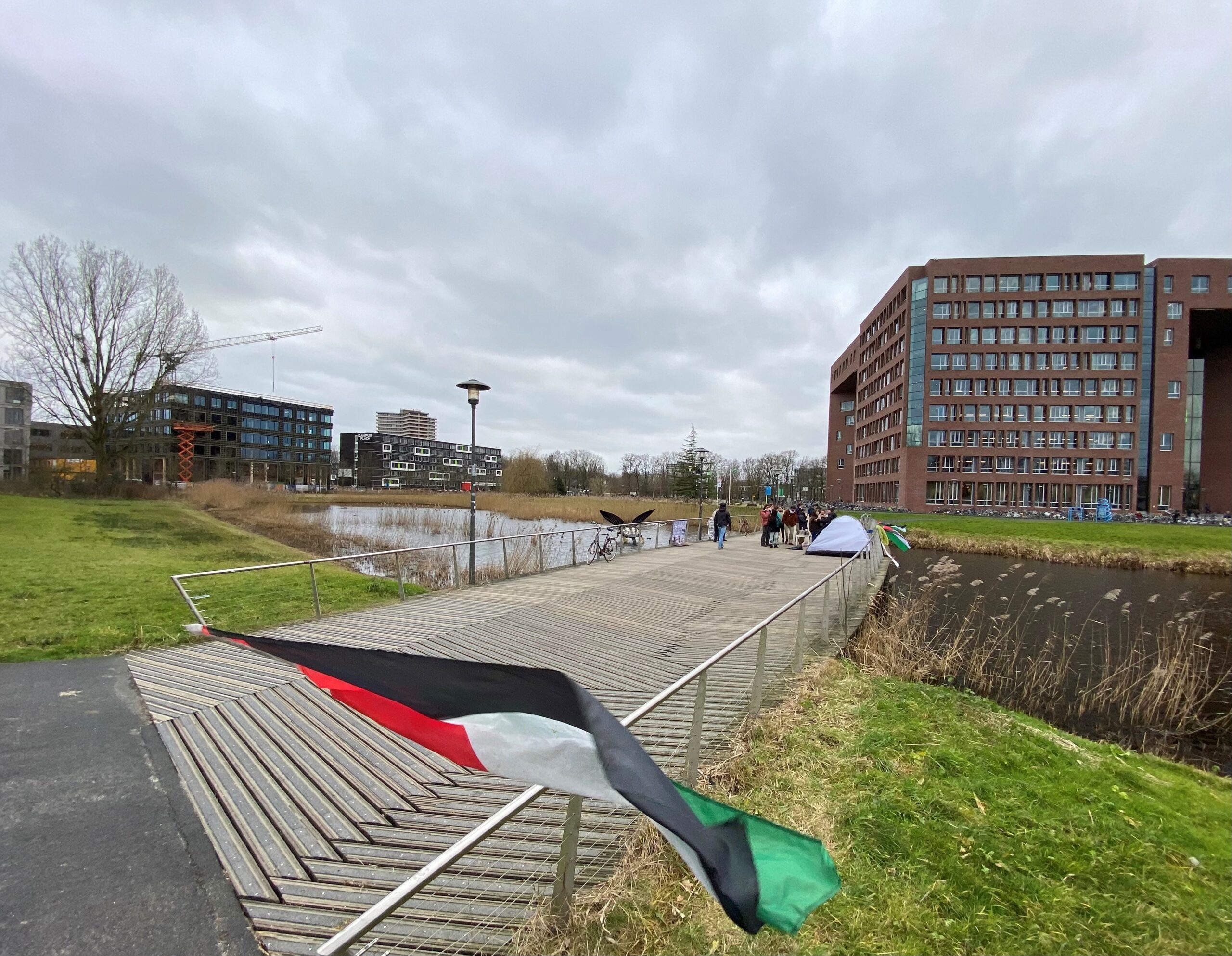Climate activism is gaining momentum. Campaigns such as the A12 motorway blockades led by Extinction Rebellion (XR) in protest against fossil fuel subsidies are repeatedly in the news. There is opposition to these illegal protests too: RTL News held an opinion poll in which 80 per cent of respondents were against this form of protest. There are Wageningen students involved in these campaigns. How are they experiencing the protests and why are they joining in?
I didn’t expect it to be so enjoyable
Tycho Thiel, student forest and nature conservation
‘The A12 blockade was the first activist protest I’ve been to. It was not at all what I expected. I had always looked up to activists and the image I had of them was quite hard-line. But they turned out to be a very sweet and empathic group, and you only realize that when you really spend time with them. Risking getting arrested together for a cause you all support feels very special. The first time I went there it was a hot day. There were people in swimming trunks dancing in the jets of water from the water cannons. Others were playing cards or sleeping. There was a cheerful and relaxed atmosphere, almost like a festival. I hadn’t expected it to be so enjoyable.
‘I was arrested but it wasn’t scary. It felt quite normal. We were taken to the ADO football stadium in The Hague, where someone got on the bus to tell us which law we had broken, after which we could go. Members of XR were waiting for us with soup and snacks. Some people even went back to the A12 and got arrested again. I can understand people who think the protests are a bit extreme, but it’s more extreme that the government turns a blind eye to the amount of damage these companies do. Maybe you just need to be in a bubble in which a lot of people understand why you are taking action. There is a bubble like that in Wageningen.’
By protesting I try to exercise some influence
Kreeft (not his real name), student, activist and organizer
‘An important trigger for me to become an activist was the WUR dialogue sessions Let’s Explore, which were held in Omnia at the beginning of this year to discuss the university’s collaboration with fossil fuel-based companies. You could feel so much tension and frustration about this subject among the students and staff in the room. I felt it myself and I wanted to do something about it. Since then I’ve been an active member of End Fossil Occupy and XR Wageningen. ‘Before the blockade marathon that started in September, there were already monthly one-day blockades on the A12. I went there several times and I got arrested then too. That was different from the blockade marathon, where you were only detained. The group was smaller then and the police had a different attitude towards the demonstrators. At times they behaved in a very patronizing and intimidating way. For example, I had painted my face to avoid being recognizable on photos, and when I walked past a row of police someone said, ‘Your mother would be proud of you with that make-up on’. They also had their truncheons at the ready from the start and there was unrest in the group because of the rough way fellow demonstrators were handled. ‘I am a very privileged person and until then had never been very troubled by the way things are done I our democracy. It’s only now that I’m very involved in climate activism that I see that it’s not so democratic at all, even when a different issue is at stake. By protesting I try to exercise some influence after all. The A12 blockade has been stopped but we are always working on new campaigns, like the Rabobank campaign. We went to Utrecht to block the entrances to the Rabobank with the message: Stop destroying, start compensating. Change won’t come of its own accord, nor will it come through the people who are now in power. You’ve got to make it happen.’
Joining such a peaceful protest is very inspiring for me
Arquimedes Escrig Garcia, a student of Resilient Agriculture from Argentina
‘A philosophy professor once said that if we really wanted something to change, we should block a motorway. Several of my housemates and friends were going to the A12 blockades, so I thought, now’s my chance. It may be a Dutch issue, while I’m from Argentina, but it’s about more than fossil subsidies: it’s about the climate. And I wasn’t the only non-Dutch person on the motorway, so there are obviously other internationals who think the same way.
‘I’m quite surprised that so many people criticize the protests. The second time I was on the A12, motorbikes and trucks turned up, making a lot of noise. They proved to be demonstrating against the protest. There were opponents of the protest at the ADO stadium in The Hague too, where you were taken after arrest.
‘XR prepares for the blockades very thoroughly and provides clear information about the risks for non-Dutch activists. You can be taken to the immigration service if you are arrested. But because they also told us the chances of being arrested are small, I went there feeling fairly relaxed. You mustn’t let yourself be put off by the police; you feel really supported by the group. I’m glad I went: joining in such a peaceful protest is very inspiring for me.’

 Text Femke van den Dries. Own photo
Text Femke van den Dries. Own photo 

